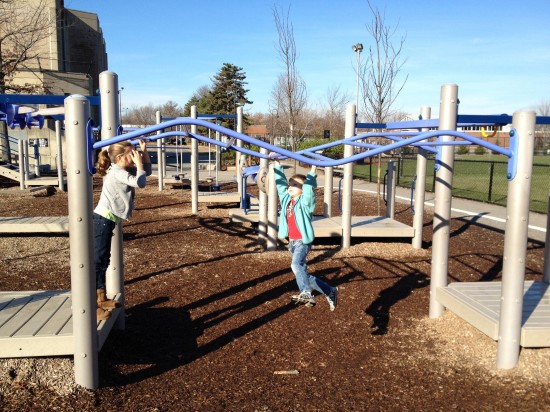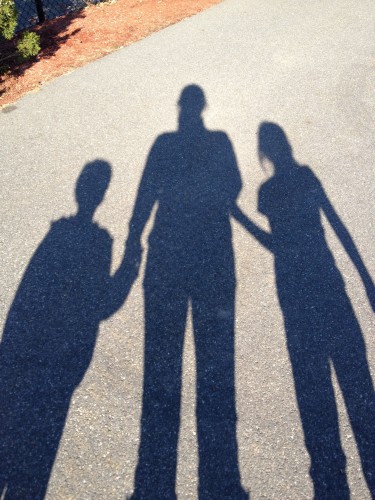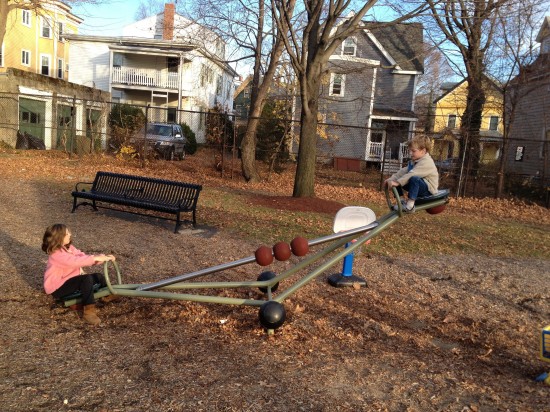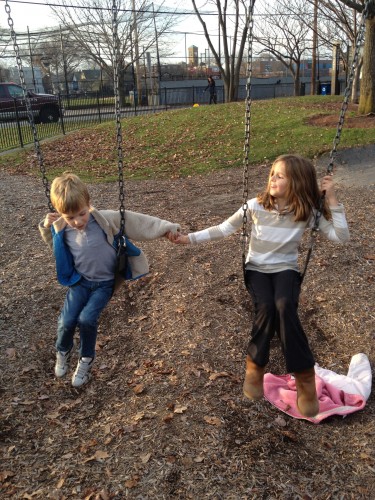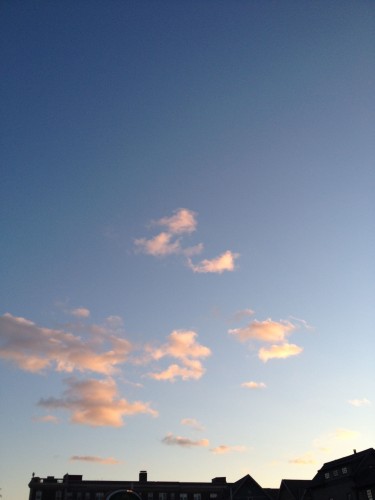
Sunday was one of those rare days I’ve come to treasure almost above all others: a day with absolutely no plans. We puttered as a family, each of us doing his or her own thing, coming together in various combinations at different moments. Grace and I went to the grocery store and to drop some things off at Goodwill, and she sighed from the backseat, “Mummy, I love days like this with you.” My eyes filled immediately and I nodded, not speaking for fear she’d hear the tears in my voice. Whit and I curled up on the couch and he read The Velveteen Rabbit to me, proud of his newly-fluent reading. The kids and I made cookies for their school’s teacher appreciation lunch, and then worked at the dining room table on a puzzle while they baked, the house filling with sugar cookie smell and the sound of Christmas carols.
I made homemade tomato sauce and apple sauce, hardboiled some eggs, baked two potatoes for lunch. I did two loads of laundry. As I was folding Whit’s pajamas and stacking Grace’s jeans in a careful pile, I felt a swell of gratitude and of well-being. I realized, not for the first time, that there is something I find deeply comforting and satisfying in the most quotidian domestic tasks. It has to do with the mundane and the magnificent that I have written about before, with the way that life is a collage of the prosaic and the transcendent. I wrote then, and I still believe, that the divinity and the drudgery are both essential for me, and that somehow they sharpen each other’s vividness.
This belief is joined now by a new one: in some way that I don’t quite understand yet, the drudgery actually allows me to access the divine. Over the last few years we’ve cut way back on our childcare, and I have all of the household responsibilities now. And I am startled, I admit, by the deep sense of satisfaction these tasks give me. I feel actual happiness when I fold laundry, or when I unpack half-eaten lunch sandwiches, or when I wake my children up every single morning, brushing their sleep-tangled hair back from their faces. Or perhaps what I feel is contentment. But I’m not sure there’s a big difference between happiness and contentment anyway; are you?
I suspect that this is a manifestation of a larger settling into my own life, a sinking into what is, in all its dishwasher-emptying, lunch-packing, homework-checking reality. The everyday details and endless work of taking care of a house, and children, and a marriage sometimes daunt and frustrate me, sure. But more often than not, these days, they also fill me with something warm and steady that feels awfully good. I am certain it’s no accident that this sinking in comes just as I realize how truly numbered these days are. This time, with small (and medium) children at home, of lost teeth and found pennies, of delight at a bird on the porch and despair at a missing teddy bear, will not furl out indefinitely. For some reason lately I sense the preciousness of these days; the awareness that they will end floats constantly around the corners of my experience. For so many years I assumed that life would be this way forever, one combative naptime spilled into another, the rocking before bedtime felt endless, and so forth. I took these days – with their bathtimes and melanine plates and kissed bruises, their exhaustion and their wide-eyed wonder – for granted.
But no, they aren’t forever. In fact they only last a minute. And I am so immensely grateful that I realized that before they were gone, and that I found, in my daily chores and responsibilities, a door through which I can glimpse the holiness of this season in my life.

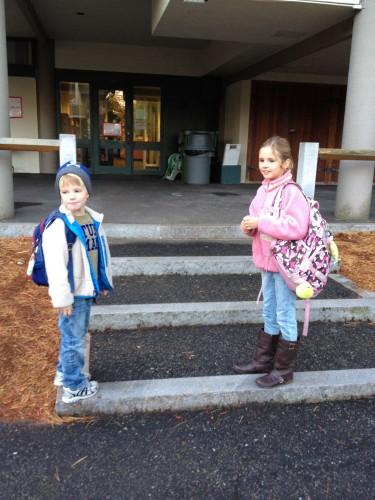 This is
This is 